This was delivered as a sermon this past Friday evening, at a spectacular outdoor service, with utterly perfect weather, visiting my long-time friends and congregants in Stamford. One can never take certain things for granted these days: great weather, old friends and the capacity of human beings for unfathomable kindness.
Today, in this message based on the Torah portion of Pinchas, I want to discuss the interdependence of Wholeness and Brokenness. One cannot exist except in relation to the other.
You probably have heard Leonard Cohen’s line, “There is a crack in everything. That's how the light gets in.1”
Just two weeks ago, in Texas, it was from a crack in the window that the water rushed into the cabin of a nine-year-old camper at Camp Mystic named Birdie Miller.2 Birdie woke up around 2:30 a.m. to the storm and needed to use the bathroom – and that saved her life because only then did she become aware of the water that was entering through that crack in the window.
Outside the water was already shoulder high, so the only way counselors could get Birdie and her bunkmates to safety was – through the window.
Birdie was evacuated by a staff member to safety on his shoulders.
There is nothing from this tragedy that can be deemed good – but from this devastation emerged stories of courage. From the cracked windows, the water poured through – but so did the light. So did kindness. Sop did a new lease on life.
And our portion says, yes. There can be light emerging from devastation, from the crack – for that is precisely how the light gets in.
There is nothing from this tragedy that can be deemed good – but from this devastation emerges stories of courage. From the cracked windows, the water poured through – but so did the light. So did kindness.
So who was this guy, Pinchas?3
And how does a terrorist, an extremist, suddenly merit one of the greatest gifts a person could ever receive – a brit shalom – a pact of peace – from God.4
To know the whole story, let’s back up a step – to last week’s portion.
The story begins when the Israelites encamped at Shittim and were assailed by a bevy of Moabite women, who lured them into worshipping the god of Baal Peor. It’s always the women who are blamed for these horrific wilderness incidents! Incensed, the God of Israel orders Moses to “take all the ringleaders and have them publicly impaled before the Lord, so that the Lord’s wrath may turn away from Israel.”
But, flouting Moses’ orders, an Israelite man took a Midianite woman, presumably for sexual relations (later identified as Zimri, a chieftain of the tribe of Shimon, and Cozbi a Midianite princess, verses 14-15).
Pinchas, the grandson of Aaron, then steps into the chamber with his spear and skewers the couple, thereby averting God’s wrath. Only then do we hear, in retrospect, that a plague had been raging through the camp and that the consequent death toll was 24,000 (verse 9). This incident competes with the Golden Calf as the low point of the Israelites’ sojourn in the desert! Moses fails to punish the leaders and control the mob and Pinchas steps into the breach, operating outside any court sanction, command from Moses, or even orders from On High.
I mean, this guy Pinchas sees a couple engaged in illicit relations and in a fit of rage – runs a spear through them. It doesn’t get any bloodier than that.
And here’s the worst part. The beginning of this week’s portion. For his efforts, God rewards Pinchas. Not only does he get away with it, but he gets the biblical equivalent of the Nobel Peace Prize. Surely there is NO ONE IN THE HISTORY OF THE WORLD LESS DESERVING of a Peace Prize, this Brit Shalom than Aaron’s grandson, and double murderer, Pinchas!
And not only does he get this Brit Shalom – but he gets this entire portion named for him – which neither Moses nor Aaron ever got - AND it’s not just any portion, but one that is read from more than any other portion in the Torah. Every synagogue that has more than a couple of scrolls always has one rolled to Pinchas – because of the festival sacrifices at the end.
So this killer gets a covenant of peace. But if you look at the first passage of this week’s portion closely5, there is something very odd about this covenant.
The vav in the word shalom is broken. You can see it here (circled in orange). There’s a crack in the vav.
It’s a broken vav.
Now, here’s where it gets interesting. Only two Hebrew letters are composed of two separate, broken parts. Kof and Hey. If any other letter is broken in the Torah it is an unkosher scroll.
But no need to rush this scroll to the E.R. for a vav replacement.
Because there is one exception to that rule – in the entire Torah – this vav in this word, shalom, right here, does not need to be replaced. It is called a “Vav ketiah” a split vav. Which is like a split infinitive but without the infinitive. Or a split pea without the pea.
And why do they split the pea anyway. Shouldn’t they just called it smooshed pea soup?
And here’s the kicker - the word shalom, which means peace and friendship – (and hello and goodbye) – also means whole and complete.
So the word that means whole is itself broken. “There is nothing so whole as a broken heart,” said the Kotsker Rebbe.
Wholeness and brokenness are inextricably connected. You can’t understand one if you haven’t experienced the other. Birdie Miller experienced the brokenness and the wholeness, near death and a new lease on life, from the same crack in the window last week in Texas
And Pinchas experienced both too.
The commentary in Etz Hayim states that peace is not truly achieved except by peaceful means – otherwise it is a broken peace. But his was a peace forged through violence.
The Talmud (Kiddushin 66b) says the split vav allows us to interpret shalom with the vav or without it. Shalem – “whole, unblemished” is not about Pinchas himself, but a sign that the priesthood will be given to Pinchas’ unblemished offspring.
The implication here is that Pinchas himself is blemished – and he is, for he has murdered, which disqualifies him from the priesthood. His peace is an incomplete, imperfect peace.
King David experienced the same thing. His empire was forged through violence, so he was not allowed to build the temple. That was left to his son, Solomon – Shlomo – whose name is peace.
When the response to overwhelming tragedy is overwhelming kindness, it takes our breath away. It sucks the oxygen out of hate. It helps restore a belief in the human potential for good - and the possibility that goodness can win out.
So take a look at verse 11. Pinchas’s name in Hebrew has an unusual Hebrew letter yod (circled in yellow). It’s tiny. (They used to make fun of his tiny yod. They called him Pinkeleh with the pitzela.6)
What do the letters yod and vav have in common? They are whole in and of themselves – they contain no extra empty space. Whole, like shalom. The yod symbolizes wholeness, but a diminished one.
But it became whole, and Pinchas’s kids became unblemished, through Pinchas’s own repentance, his teshuvah. – See verse 25:13 “he atones for the children of Israel” (and did teshuvah for himself)/
Pinchas is not qualified to lead the people (Joshua is pointedly chosen in this portion), too zealous…but he does Teshuvah, so his legacy becomes eternal.
Think Menachem Begin (a zealot – who then shook hands with Anwar Sadat) The potential for change is always there.
Here’s a lesson for today – the more brutal the war, the less likely it is to forge peace on the morning after. Right now there is no “day after” plan in Gaza – and if the broken vav is to be understood, it will take a generation or more. Maybe the next generation will have a chance. But the longer and bloodier this war remains, the longer it will take.
Here’s another interesting part of Pinchas’s legacy. HE NEVER DIES! The Bible never records his death – which very unusual for an outstanding leader.
There are traditions that he himself was to be a priest forever.
Long after even Joshua dies, Pinchas is mentioned in Judges 20:28 – At the end of the period of the Judges, “the people of Israel inquired of the Lord and Pinhas, son of Eliezer, son of Aaron, ministered before the ark in those days…”
Numbers Rabbah states – “behold I am giving him a covenant of peace – that he is still alive.” 7
When we think of major biblical figures who don’t die, three have connections to this portion:
- Pinchas
- Sons of Korah
- Elijah
Like Pinchas, Korah the rebel was not fit for leadership; and it says, in this portion, (Numbers 26:11) that the children of Korah did not die8
Elijah’s vision of the still small voice is the haftarah for this portion, unless, like this year, it comes during the three weeks of mourning leading to the Fast of the Ninth of Av. And in ancient times, there was a widespread belief in that time that Pinhas and Elijah were one and the same! 9
Pinhas’ death is never recorded, neither is Elijah’s birth – and did you ever see them together in the same place? Both are called “zealous” for the Lord; both perform sacrifices – And here’s the key: both were really mean, vicious people – but in the end, both had an image makeover. Both repented. Both evolved. We see Pinchas’s teshuvah here.
And Elijah became the embodiment of kindness, charity and hope. Sort of the Jewish Santa Claus, going from house to house and drinking a sip of wine instead of a glass of milk.10
When and how was the image of Elijah changed so completely? Maybe he, like Pinchas, was able to piece together the broken vav.
The midrash sees Pinchas as a peacemaker between the tribes. He was, in the end, a peace-loving guy. The rabbis wrote: “Be like sons of Aaron –seek peace and pursue it.” Pinchas was one of those descendants of Aaron.
There’s a sign prominently displayed in Camp Mystic's dining hall, near the bell that calls everyone together. It has the message, "Be ye kind, one to another."11
Steve Bannon spoke cynically a few years ago about MAGA’s goal to “flood the zone” with chaos and disruption.12
And our response must be to flood the zone13 – even a flood zone – with kindness and love.14
That’s what they did at Camp Mystic. They flooded the zone with kindness.15
Like the two 19-year-old counselors, from Mexico of all places, who knew that the tragedy had unfolded in other cabins early that fateful morning. But they were responsible for the girls in their own bunk, who were upset and worried.
So the two teens hid their own fears and focused on distracting and entertaining the younger girls, from the moment they awakened until they were evacuated by military vehicles around dinnertime.
“We had to put on brave faces so the girls wouldn’t know,” Silvana Garza told a Mexican news outlet.
Garza and fellow counselor María Paula Zárate, have been recognized for their heroism by Mexico's president. Their story has also gone viral on social media. That is a brit Shalom. That is flooding the Zone.
Kindness is bipartisan. Kindness unites us. We now know of two things that absolutely unite red and blue America: Disdain for Jeffrey Epstein’s enablers - and kindness.
And kindness is how we repair the broken vav. And how we repair America.
When the response to overwhelming tragedy is overwhelming kindness, it takes our breath away. It sucks the oxygen out of hate. It helps restore a belief in the human potential for good - and the possibility that goodness can win out.
The Torah’s response to Pinchas for an act of unspeakable harshness, was a Pact of Peace with a crack in the vav. An imperfect peace. But for now, that needs to be good enough.
Let’s flood the zone with compassion and peace - the perfect response to Steve Bannon. Even if it needs to be an imperfect, broken peace. Or as Leonard Cohen would call it, a broken “Halleluyah.”
Because that’s how the light streams in.
Here’s a video of Cohen singing Anthem
See People article about the Miller girls: Mom of 3 Says Her Youngest Daughter Was Hoisted Out of Shoulder-High Floodwaters by Camp Counselor.
This Pinchas intro is almost begging me to do it Hamilton style:
“How does a killer, zealot, should’ve gone to hell yet, grandson of Aaron, dropped in the middle of a forgotten spot in the Sinai by providence, impoverished, ends a plague’s squalor, then grows up to be a peace-man and a scholar?”
Download below the full parsha packet for Pinchas, used Friday night and Shabbat morning.
No one ever called him that.
The verse is from Ephesians 4:32 - See parallels from New Testament as well as the Hebrew Bible. The Hebrew word Hesed,“ “steadfast love,” appears 251 times in the Tanakh (Hebrew Bible).
Trump strategy was laid out by Steve Bannon in a 2018 confession to the writer Michael Lewis. “The Democrats don’t matter,” Bannon told Lewis. “The real opposition is the media. And the way to deal with them is to flood the zone with shit.”
Based on a football term, “flooding the zone” is where the offense overloads one side of the field with more receivers than the defense can easily cover. In politics, flooding the zone “is a political tactic designed to overwhelm people with so much information that it’s hard to figure out what really matters.” Another recent example of flooding the zone is Iran’s strategy of overwhelming Israel’s nearly impregnable air defenses. Though few missiles pierced those defenses, because of the sheer numbers fired, they were able to do significant damage. The passage below is from The Jerusalem Post.
See: A family slept as Texas floods raged. A stranger screamed, and saved their lives. (USA Today).
See also: Young Texans turn grief into action after deadly Central Texas floods (CBS)
Also: 'Be kind, one to another': Camp Mystic community holds onto hope after devastating flood (ABC) From alumni to current campers and counselors, acts of kindness have emerged as the heart of the recovery. “My own daughter was baking cookies with a group of campers — kids she once counseled — and they were dropping them off at other Mystic campers’ houses,” Hudson said. “None of it was prompted. It’s just what they are called to do: be kind.”






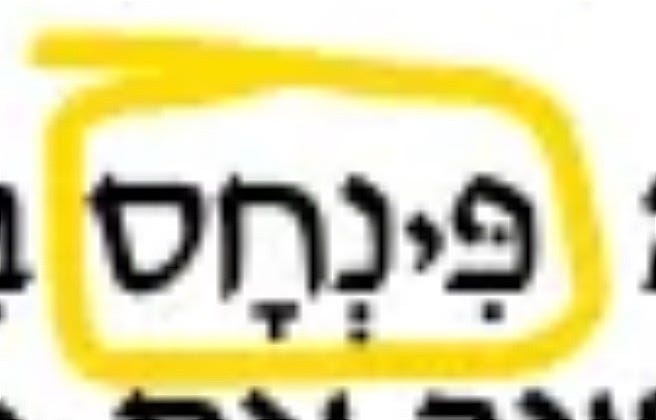
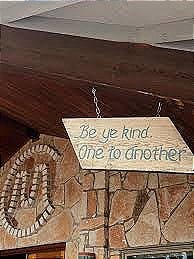
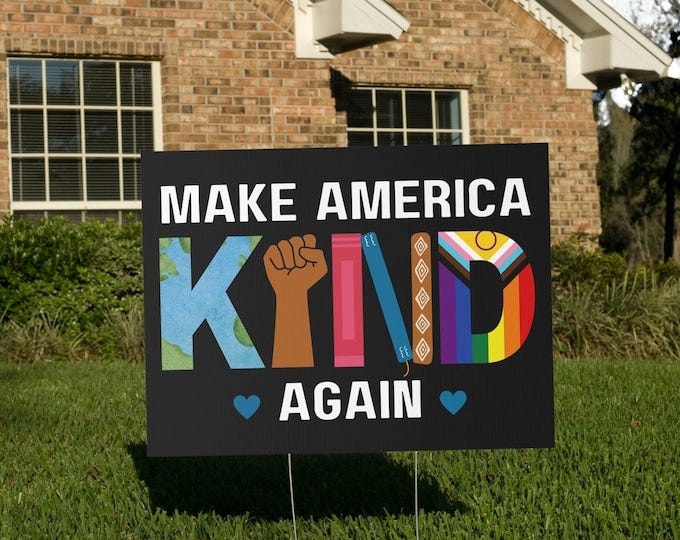
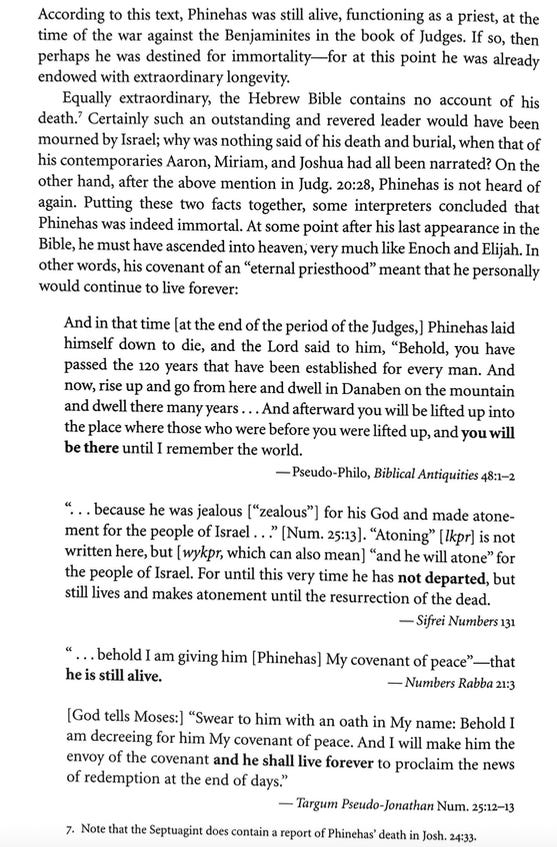

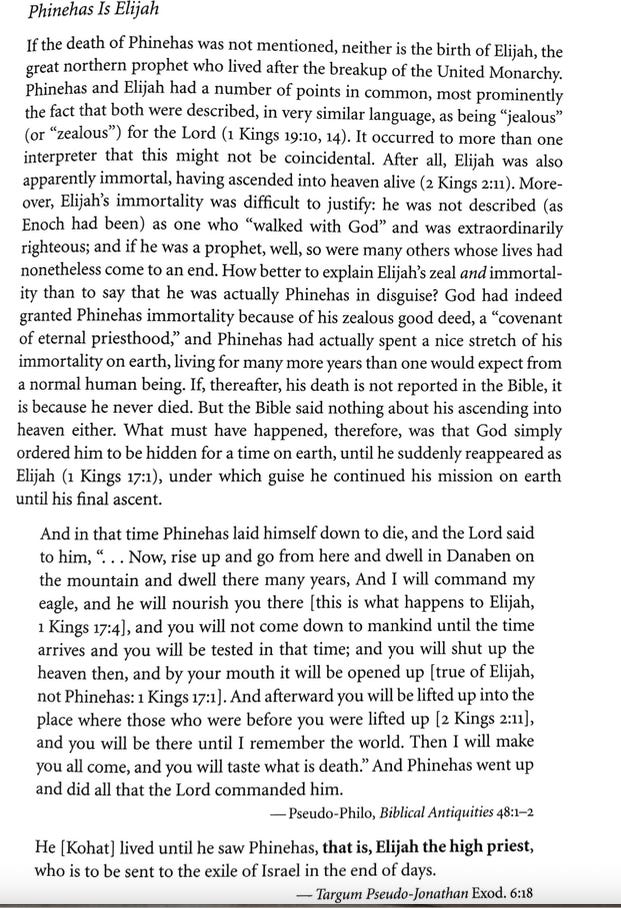
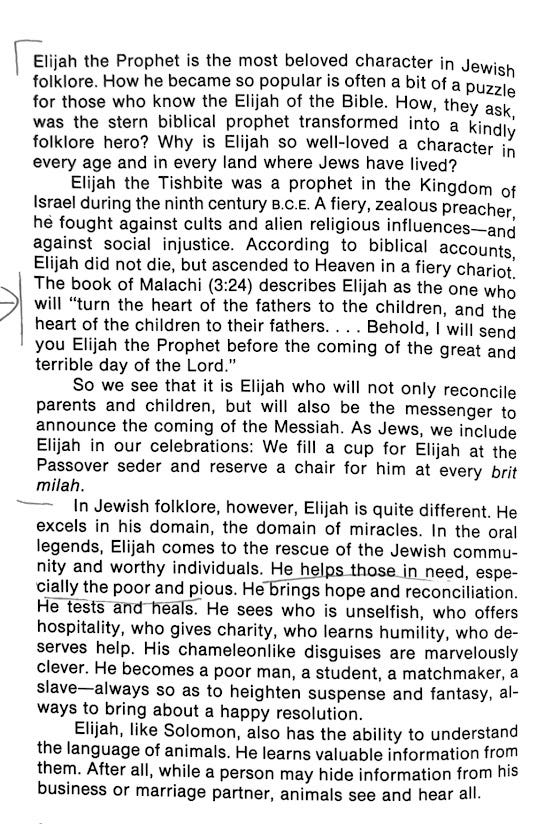
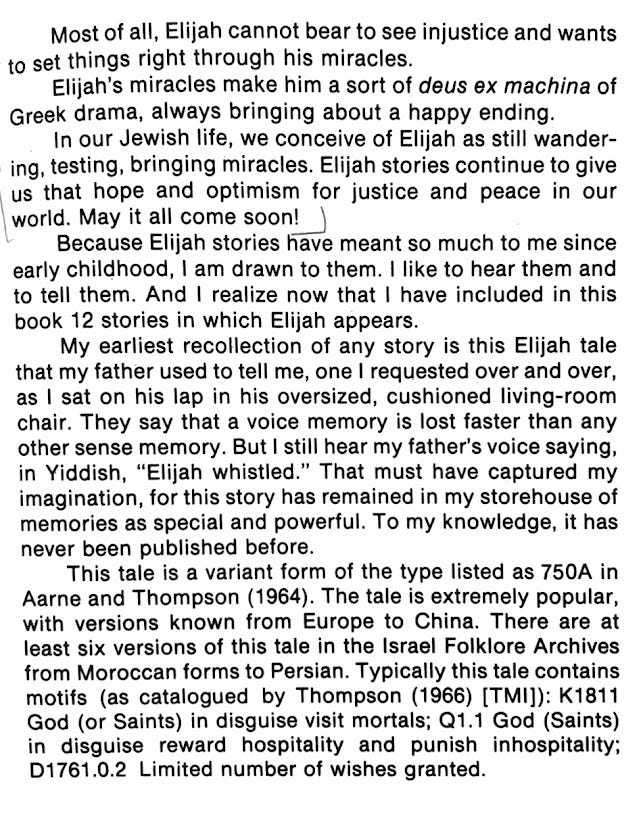





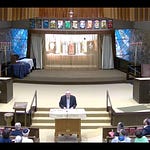



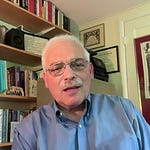
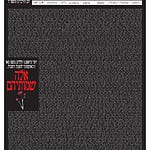
Share this post